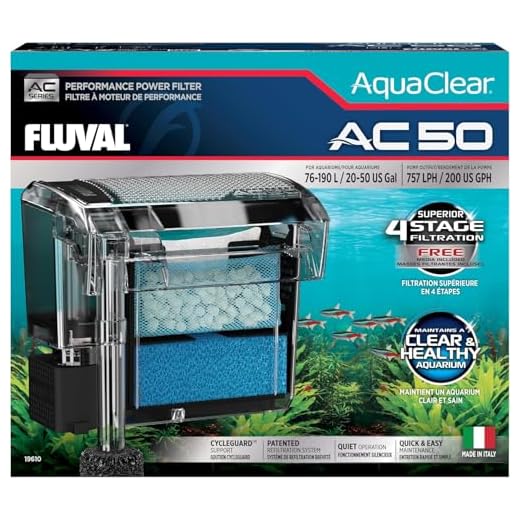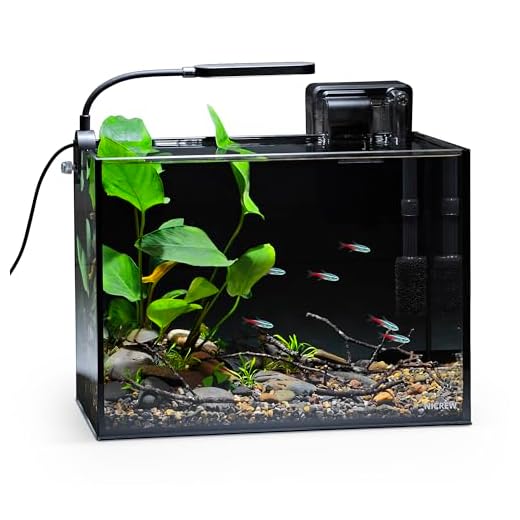Reef
Blog
What do betta fish need in their tank

Betta fish, also known as Siamese fighting fish, are popular pets known for their vibrant colors and flowing fins. These beautiful fish originate from Southeast Asia and are native to Thailand, Cambodia, and Vietnam. In their natural habitat, betta fish are accustomed to living in slow-moving waters such as rice paddy fields and shallow streams.
When keeping betta fish as pets, it is essential to provide them with a suitable and comfortable environment in their tank. Betta fish tanks should ideally be spacious, have a secure lid to prevent escapes, and be equipped with a filter and heater to maintain optimal water conditions.
One of the key aspects to consider when setting up a betta fish tank is water temperature. Bettas are tropical fish and require warm water to thrive. The ideal water temperature for betta fish is between 78°F and 80°F (25°C and 27°C). Maintaining a stable and warm temperature will help keep your betta fish healthy and active.
In addition to temperature, the water quality in a betta fish tank is crucial. Bettas are sensitive to poor water conditions and require clean, well-filtered water. Regular water changes, filtration systems, and proper maintenance are necessary to ensure the water remains clean and free from harmful substances.
Keeping Betta Fish: Tank Essentials
When it comes to keeping betta fish, it’s important to provide them with a proper tank setup to ensure their health and happiness. Here are the tank essentials you need to consider:
1. Tank Size
One of the most important factors to consider is the tank size. Betta fish require a tank that is at least 5 gallons in size. Anything smaller can lead to poor water quality and stress for the fish.
2. Heated and Filtered Water
Betta fish are tropical fish and they require heated water to thrive. The tank should have a heater to maintain a constant temperature between 78-82°F (25-28°C). Additionally, a good filtration system is essential to keep the water clean and free from toxins.
3. Substrate and Decorations
Providing a suitable substrate and decorations is important to mimic the natural habitat of betta fish. Use a soft substrate like sand or gravel that won’t harm their delicate fins. Decorations such as plants, caves, and driftwood not only provide hiding spots but also offer mental stimulation for your fish.
4. Hiding Places
Betta fish need plenty of hiding places. You can add live or silk plants with broad leaves or create caves and tunnels using decorations. These hiding spots will provide security for your fish, reduce stress, and promote their natural behavior.
5. Lighting
Betta fish thrive in a well-lit environment, but be mindful of the intensity and duration of the light. They should have access to 8-12 hours of light each day to maintain a regular day-night cycle, but avoid excessive brightness as it can cause stress.
6. Water Parameters
Keep an eye on the water parameters such as pH, ammonia, nitrite, and nitrate levels. Betta fish prefer slightly acidic water with a pH between 6.5 and 7.5. Regular testing and proper water maintenance are essential to ensure a healthy environment for your fish.
7. Regular Maintenance
Maintaining a clean and healthy tank is crucial for the well-being of your betta fish. Perform regular water changes, clean the substrate, and check the equipment to prevent any issues. A weekly water change of 25-50% is recommended to maintain optimal water quality.
By providing the necessary essentials for your betta fish’s tank, you can create a thriving and beautiful environment for your pet to enjoy. Remember to monitor their behavior and health regularly to ensure they are happy and comfortable in their new home.
Proper Tank size
An important factor in keeping betta fish healthy and happy is providing them with the right tank size. Betta fish are known for their colorful fins and active swimming behavior, so it is crucial to give them enough space to move around.
As a general rule of thumb, a betta fish should have a tank that is at least 2.5 gallons or more in size. While some people may keep bettas in smaller tanks or even bowls, this is not recommended as it can lead to stress, poor water quality, and limited swimming space.
A larger tank not only allows the betta fish to swim more freely but also provides more room for filtration and temperature regulation. A bigger tank means more water volume, which can help maintain the water quality and stability. It also allows for the installation of a proper filtration system to remove waste and toxins.
In addition to the tank size, it is important to consider the dimensions of the tank. A long tank is preferable over a tall tank because betta fish are horizontal swimmers. A longer tank provides more swimming area and allows the betta fish to exhibit their natural behavior.
When setting up the tank, it is important to provide proper hiding spots and decorations for the betta fish. This can include live or artificial plants, caves, and ornaments. These hiding spots not only provide shelter and security for the fish but also create a stimulating environment.
Overall, providing a proper tank size for betta fish is essential for their well-being. A larger tank with adequate filtration and hiding spots will help ensure that the betta fish thrive and display their natural behavior.
Suitable Water Temperature
Betta fish are tropical fish and require a specific water temperature in their tank to thrive. The ideal water temperature for betta fish is between 78 and 82 degrees Fahrenheit (25 to 28 degrees Celsius).
Consistent temperatures: It is important to keep the water temperature in the betta fish tank consistent. Fluctuating temperatures can stress the fish and make them more susceptible to diseases.
Aquarium heater: To maintain the proper water temperature, it is recommended to use an aquarium heater. This device will regulate the temperature and ensure that it stays within the desired range.
Thermometer: It is crucial to have a reliable aquarium thermometer to monitor the water temperature. This will help you adjust the heater if necessary and ensure that the betta fish are kept in a suitable environment.
Avoid extreme temperatures: Betta fish cannot tolerate extreme temperatures, so it is essential to keep them away from drafts, direct sunlight, or any other sources of heat or cold that could cause significant temperature changes in the water.
Remember, maintaining the right water temperature is crucial for the health and well-being of your betta fish.
Appropriate Filtration System
One of the most important things that betta fish need in their tank is an appropriate filtration system. Betta fish produce waste, just like any other fish, and this waste can quickly build up and contaminate the water if not properly filtered out. In order to maintain a healthy and clean tank environment for your betta fish, it is essential to invest in a high-quality filtration system.
When choosing a filtration system for your betta fish tank, it is important to consider a few factors. Firstly, you should select a filter with a low flow rate. Betta fish are known for their delicate and flowing fins, and a strong water current can stress and damage their fins. Look for a filter that has an adjustable flow rate or a specially designed betta filter that provides a gentle flow.
In addition to the flow rate, it is also important to choose a filter that provides both mechanical and biological filtration. Mechanical filtration helps to physically remove debris and waste from the water, while biological filtration utilizes beneficial bacteria to break down harmful substances like ammonia and nitrite.
Lastly, you should consider the size of your betta fish tank when selecting a filtration system. The filter should be able to adequately clean and circulate the water in the tank. As a general guideline, the filter should be able to process at least four times the volume of the tank per hour.
Regular maintenance is also necessary to ensure the effectiveness of the filtration system. This includes cleaning the filter media on a regular basis and replacing it when necessary. It is also important to monitor the water parameters regularly to make sure they are within the appropriate range for betta fish.
By providing an appropriate filtration system for your betta fish tank, you can help create a clean and healthy environment for your fish to thrive in.
Balanced Water Chemistry
Ensuring balanced water chemistry is crucial for the health and well-being of betta fish. It is important to regularly test and monitor the water in the tank to maintain optimal conditions.
Water Temperature
The water temperature should be kept between 78-82°F (25-28°C) as betta fish are tropical species and thrive in warmer water. Using a heater with an adjustable thermostat can help maintain a consistent temperature.
pH Level
Monitoring the pH level is essential as betta fish prefer a slightly acidic to neutral environment. The ideal pH range for bettas is between 6.5 and 7.5.
Ammonia and Nitrite Levels
Ammonia and nitrites are harmful to betta fish and can lead to health problems. Regularly test the water for these compounds and ensure they are at zero parts per million (ppm).
Nitrate Levels
Nitrates are less toxic than ammonia and nitrites but can still harm bettas in high concentrations. Keeping nitrate levels below 40 ppm is recommended through regular water changes and proper filtration.
Water Hardness
Betta fish prefer soft water with a low mineral content. Optimal water hardness for bettas is between 2-15 dGH (degrees of general hardness).
Maintaining balanced water chemistry in a betta fish tank is crucial for their overall health and longevity. Regular testing, water changes, and proper filtration can help achieve and maintain optimal conditions for these beautiful aquatic creatures.
Question & Answer
What size tank do betta fish need?
Betta fish need at least a 5-gallon tank. They require enough space to swim and explore.
Do betta fish need a filter?
Yes, betta fish need a filter to keep the water clean and provide proper circulation. However, the flow rate should be gentle to prevent stressing the betta fish.
Can betta fish live in bowls?
Betta fish can survive in bowls, but it is not an ideal environment for them. They need a tank that can hold at least 5 gallons of water to ensure they have enough space and proper filtration.
What temperature should a betta fish tank be?
The water temperature in a betta fish tank should be kept between 76 and 82 degrees Fahrenheit (24-28 degrees Celsius) to replicate their natural habitat.
Do betta fish need light in their tank?
Yes, betta fish need a light in their tank to provide a day-night cycle. It helps regulate their natural behaviors and promotes a healthy sleep-wake cycle.
What are the basic needs of betta fish in their tank?
Betta fish need a tank with a capacity of at least 5 gallons, a filter to maintain water quality, a heater to keep the water temperature between 78-80 degrees Fahrenheit, and hiding places like plants or caves.
Do betta fish need a filter in their tank?
Yes, betta fish need a filter in their tank to maintain water quality. A filter helps to remove toxins and impurities, keeping the water clean and healthy for the fish.







